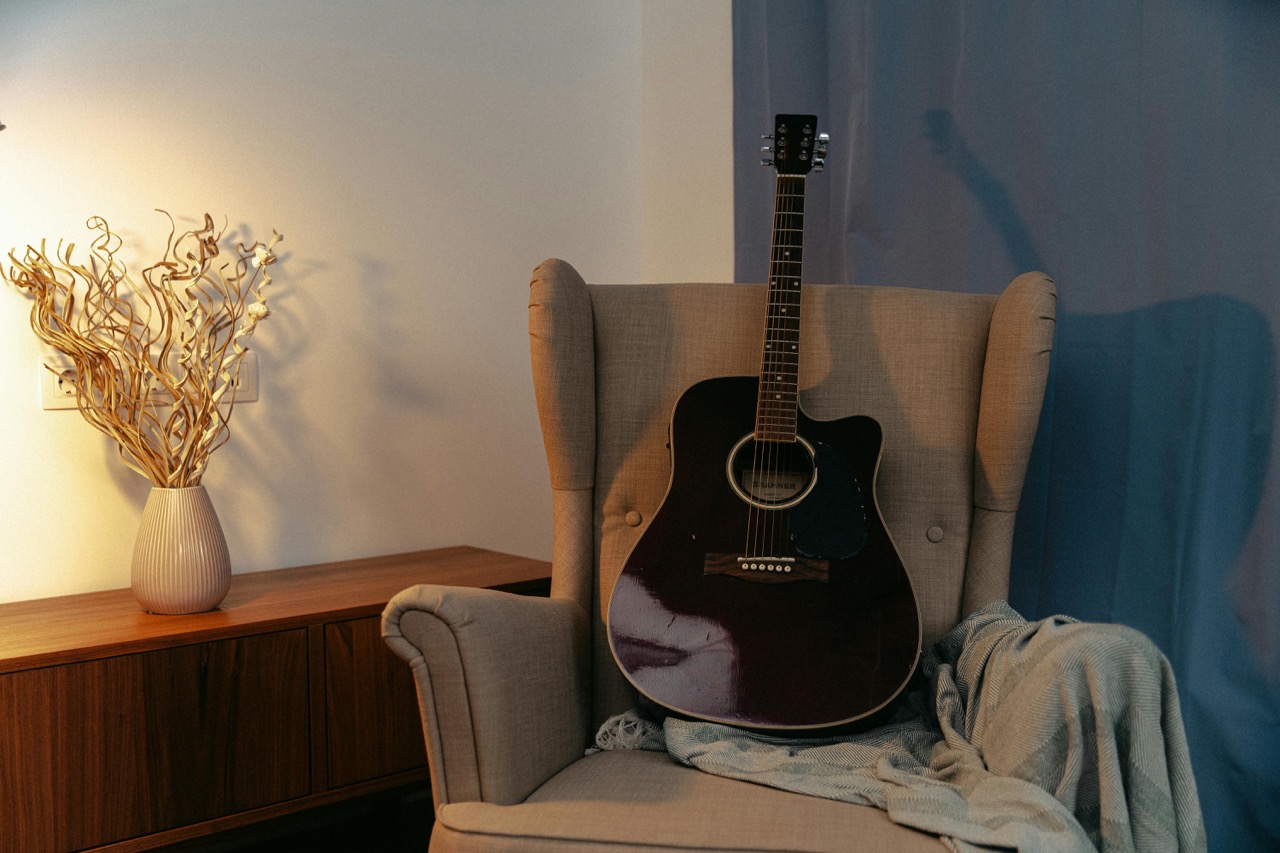
The Transformative Impact of Guitar Therapy on PTSD Recovery
Imagine a world where the gentle strum of guitar strings can silence the echoes of trauma. For countless veterans and first responders, this isn't just a dream—it's becoming their reality through the revolutionary approach of guitar therapy.

Introduction
Post-Traumatic Stress Disorder (PTSD) affects millions of people worldwide, with an estimated 9 million individuals battling this condition in the United States alone. While traditional therapies have their place, innovative approaches like guitar therapy are emerging as powerful tools in the fight against PTSD. At Freedom Sounds USA, we've witnessed firsthand the transformative impact of guitar therapy on veterans, first responders, and civilians struggling with the effects of trauma. In this article, we'll explore the profound ways in which guitar therapy is changing lives and offering new hope for those on the path to recovery.
Understanding PTSD and the Need for Alternative Therapies:
PTSD is a complex mental health condition that can develop after experiencing or witnessing a traumatic event. It affects people from all walks of life, but certain groups, such as veterans and first responders, are at higher risk due to the nature of their work. In fact, studies show that 29% of veterans develop PTSD from wars, highlighting the urgent need for effective treatment options.
While traditional therapies like cognitive-behavioral therapy and medication have their place, many individuals find that these approaches alone are not enough to fully address their symptoms. This is where alternative therapies, such as guitar therapy, come into play. By engaging different parts of the brain and providing a creative outlet for emotional expression, guitar therapy offers a unique approach to healing that complements traditional treatments.
The Science Behind Guitar Therapy:
Guitar therapy is more than just learning to play an instrument; it's a form of music therapy specifically designed to address the symptoms of PTSD. Research has consistently shown the positive effects of music on mental health, and guitar therapy takes these benefits a step further by combining them with the act of learning a new skill.
When an individual engages in guitar therapy, several processes occur simultaneously:
- Neuroplasticity: Learning to play the guitar creates new neural pathways in the brain, potentially helping to rewire traumatic memories and associations.
- Emotional regulation: The act of playing music can help individuals process and express emotions that may be difficult to verbalize.
- Stress reduction: The rhythmic nature of guitar playing can have a calming effect on the nervous system, reducing stress and anxiety.
- Mindfulness: Focusing on playing the guitar can serve as a form of mindfulness meditation, helping individuals stay present and grounded.
- Self-esteem building: Mastering new skills on the guitar provides a sense of accomplishment and boosts self-confidence.
The Multifaceted Impact of Guitar Therapy:
Here are some of the key ways in which guitar therapy impacts individuals with PTSD:
- Stress Reduction: One of the most immediate benefits of guitar therapy is its ability to lower stress levels. The act of strumming a guitar and focusing on creating music can serve as a form of meditation, allowing individuals to temporarily disconnect from their worries and anxieties. Many participants describe playing the guitar as a "mini-vacation for their brain," providing much-needed relief from the constant state of hyper vigilance often associated with PTSD.
- Improved Sleep: Sleep disturbances, including nightmares and insomnia, are common symptoms of PTSD. Guitar therapy has shown promising results in improving sleep quality for many individuals. The calming effect of playing music before bed can help quiet racing thoughts and promote relaxation. Additionally, some participants report experiencing fewer nightmares after incorporating guitar playing into their daily routines.
- Enhanced Mood and Emotional Regulation: PTSD can often lead to mood swings and difficulty managing emotions. Guitar therapy provides a healthy outlet for emotional expression, allowing individuals to channel their feelings into music. This can lead to improved mood stability and a greater sense of emotional control. The act of creating music can also trigger the release of endorphins, the body's natural "feel-good" chemicals, further contributing to mood enhancement.
- Increased Self-Esteem and Confidence: Learning to play the guitar is a journey of small victories. Each new chord mastered or song learned represents a tangible achievement. For individuals with PTSD who may struggle with feelings of worthlessness or low self-esteem, these accomplishments can be incredibly empowering. The confidence gained through guitar therapy often extends beyond music, positively impacting other areas of life.
- Social Connection and Support: Isolation is a common challenge for those with PTSD. Our group guitar therapy sessions provide a safe space for individuals to connect with others who understand their experiences. Playing music together fosters a sense of camaraderie and shared purpose. These social connections can be vital in combating feelings of loneliness and building a support network.
- Non-Verbal Expression of Trauma: One of the unique aspects of guitar therapy is its ability to facilitate non-verbal expression of trauma. Many individuals with PTSD struggle to articulate their experiences and emotions verbally. Music offers an alternative language for expression, allowing individuals to process and communicate their feelings in a way that feels safe and manageable.
- Cognitive Benefits: Learning to play the guitar engages multiple cognitive processes, including memory, attention, and fine motor skills. This mental stimulation can help combat some of the cognitive symptoms associated with PTSD, such as difficulty concentrating or memory problems. The structured nature of learning music can also provide a sense of order and control, which can be comforting for individuals dealing with the chaos of PTSD symptoms.
- Rediscovery of Joy and Creativity: PTSD can often rob individuals of their ability to experience joy and engage in creative pursuits. Guitar therapy helps reignite these essential aspects of life. The pleasure of creating music and the satisfaction of self-expression can help individuals reconnect with positive emotions and rediscover their creative potential.
The Future of Guitar Therapy:
As awareness of the benefits of guitar therapy grows, we anticipate seeing its integration into more comprehensive PTSD treatment programs. At Freedom Sounds USA, we're committed to expanding our reach and making guitar therapy accessible to as many individuals as possible.
We're also excited about the potential for further research in this field. While existing studies have shown promising results, there's still much to learn about the long-term impacts of guitar therapy and how it can be optimized for different individuals and types of trauma.
Conclusion:
Guitar therapy represents a powerful and innovative approach to PTSD recovery. Its ability to address multiple symptoms simultaneously, while providing a creative outlet for emotional expression, makes it a valuable complement to traditional therapies. At Freedom Sounds USA, we've seen firsthand how learning to play the guitar can transform lives, offering hope, healing, and a renewed sense of purpose to those struggling with the effects of trauma.
If you or someone you know is battling PTSD, we encourage you to explore the potential of guitar therapy. Our Frets N' Vets program offers a supportive, community-based approach to healing through music. Remember, recovery is possible, and sometimes, the path to healing can be found in the most unexpected places – like the strings of a guitar.
To learn more about our program or to support our mission, please visit our website or contact us directly. Together, we can harness the power of music to combat PTSD and change lives, one note at a time.

Support our mission
Freedom Sounds is a non-profit organization dedicated to helping individuals with PTSD recover through guitar playing. Join us on our mission:
- Donate: Your contributions help us provide free guitar lessons and expand our reach.
- Volunteer: Become a guitar instructor and directly impact someone's life.
- Sponsor: Provide guitars for participants or help us open new locations.
- Spread the Word: Share our story to help more people discover the healing power of music.
Contact Us
Contact us for any questions you may have.
If you want to inquire about donating or participating in a lesson, here is the perfect place to do it.
We will get back as soon as we can.

